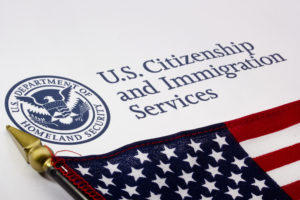Federal Judge Issues Injunction on Public Charge Rule
October 11, 2019
The Trump administration’s “public charge” rule, officially titled Inadmissibility on Public Charge Grounds, was temporarily blocked by injunction on Friday, October 11, 2019. The judge issuing the injunction stated that the policy could cause irreparable harm and cited the reasoning for the injunction as “the balance of equities and the interests of justice.” The rule had been slated to go into effect on Tuesday, October 15 and would broaden an existing barrier to immigration that currently states that an individual is inadmissible to the United States if they are dependent on Supplemental Security Income (SSI), Temporary Assistant to Needy Families, and/or long-term care. If the Trump Administration’s changes to this rule are permitted to go into effect, the relevant grounds for inadmissibility will expand to additionally exclude individuals that depend on Medicaid, the Supplemental Nutrition Assistance Program (SNAP), the Section 8 Housing Choice Voucher Program, the Section 8 Project-Based Rental Assistance, and Public Housing. Medical conditions, employment history, occupational licenses, education, and English proficiency would also be used to evaluate whether individuals applying for or benefiting from nonimmigrant visas and permanent residence could become a “public charge.”
The blatantly discriminatory policy brought widespread criticism and around a dozen lawsuits from around the country. The American Immigration Lawyers Association filed one such lawsuit, specifically stating that the new rule was not allowing for any reasonable transition between the current editions of certain forms and their new editions. USCIS had planned to stop accepting the current editions if postmarked on or after October 15th, 2019 but did not release the new editions until late October 9th. Due to closures for holidays and the weekend, this would have significantly slowed and impeded the submission of applications and petitions.
The injunction blocks the Trump administration’s public charge rule from being applied and USCIS from refusing the current editions of immigration forms for now; however, this current political conflict over the rule reflects the consistent attempts that this administration is making to limit immigration and discriminate against immigrants. Trump has repeatedly used language suggesting that the policy prevents immigrants from financially burdening the government. It is crucial that the country responds every time, as many as it takes: no immigrant, no person, is a burden.
TAGS: AILA, Immigration Justice, Lawsuit, Public Charge, Trump, USCIS
January 27, 2026
Fiscal Year 2027 H-1B Lottery The initial registration period for the fiscal year 2027 H-1B lottery is expected to start in early March 2026 and...MoreJanuary 14, 2026
ALERT: State Department To Pause Issuance of Immigrant Visas From 75 Countries On January 14th, the Department of State issued a post on social media announcing that they would “pause immigrant visa...More





